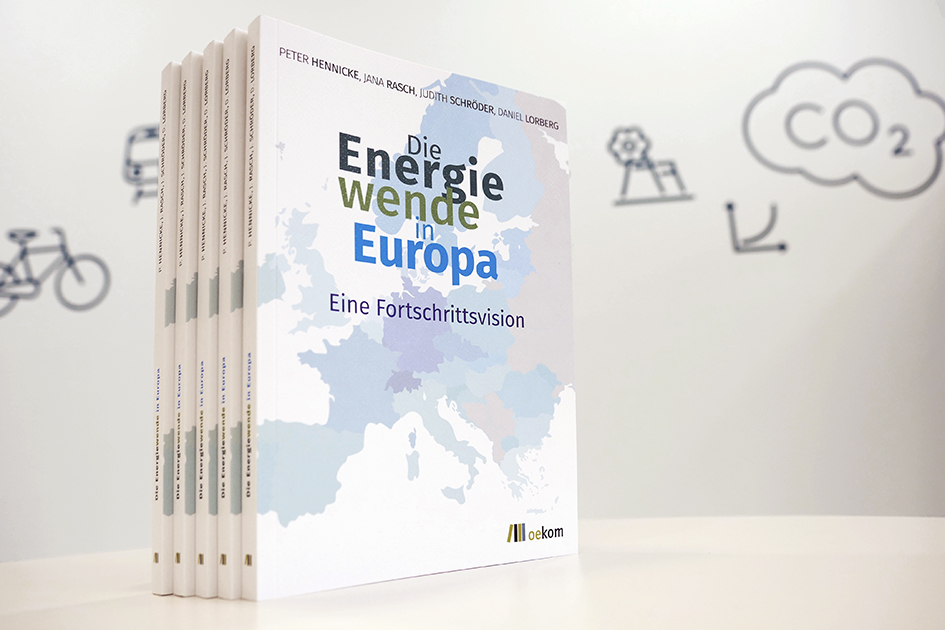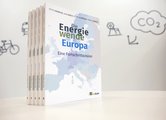Appeal for a European Energy Transition
Wuppertal Spezial about energy transition in Europe published

Wuppertal Spezial about energy transition in Europe published


A successful energy transition includes the transformation to a completely decarbonised, atomic energy-free and socially, and economically compatible energy system. Prof. Dr. Peter Hennicke, Jana Rasch, and Judith Schröder from the Wuppertal Institute as well as Dr. Daniel Lorberg from the University of Wuppertal in their recently published Wuppertal Spezial "The Energy Transition in Europe" prove that this is feasible on the basis of numerous studies and practical examples.
Elections took place in Europe at the end of May 2019. A good time that the Europeanisation of the energy transition no longer has to remain a utopia. It has the potential for a new and realistic vision of progress that can give the "European idea" a future-oriented content. The goal is clear: by 2050 Europe must be able to do without fossil and nuclear energy in order to meet its global responsibilities. Available studies for the European Union and individual member states show that this vision is feasible and has many advantages: more jobs, greater security of supply, fewer premature deaths from air pollution, the reduction of resource conflicts, and falling energy costs.
The Wuppertal Spezial "The energy transition in Europe – a vision of progress" shows which concrete steps can advance this vision. It is a summary of the German book called "Die Energiewende in Europa – Eine Fortschrittsvision". The authors take a critical look at the latest developments in European and German energy transition, the existing problem areas and, above all, the opportunities associated with a comprehensive energy transition. They are based on numerous analyses of how European policy can be implemented through forced energy saving, the systematic expansion of renewable energies and more environmentally conscious behaviour.
The book is intended to provide a basis for discussion on new approaches to energy transition in Europe on the occasion of the European elections.
"Europe without coal and uranium is a viable strategy worth fighting for," stresses Prof. Dr. Peter Hennicke, Senior Advisor at the Wuppertal Institute and former President of the Institute, adding: "The implementation of an energy transition is a long-term socio-ecological transformation process for which there is no blueprint. This is a social field of experimentation for the ability of a highly developed industrial region to reform itself in the age of globalisation".
A European energy transition requires an alliance, ideally fuelled by neighbours France and Germany. Many are hoping for Germany as a driver of nuclear and coal phase-out. The team of authors underlines that Germany is currently lagging far behind expectations and its own goals. Finally, implementing its own targets – that's what matters in Germany now and could have a considerable signal effect on Europe and beyond.
"The decarbonisation of the energy system is without doubt an ambitious social and energy policy project. It is a historically unique process and requires a variety of efforts, which must last at least until the middle of the 21st century," explains Prof. Dr. Manfred Fischedick, Vice-President of the Wuppertal Institute, and adds: "I am very pleased that the summary of the book provides important food for thought on how implementation can succeed in concrete terms in time for the European elections."
The book was produced in cooperation with the Alternative Economic Policy Working Group. (AAW/Bremen). The book "Die Energiewende in Europa" is available for purchase (German only) and was financed as a project by oekom crowdln, a crowdpublishing platform for innovative ideas on sustainability in the environment and society.
About the authors
Prof. Dr. Peter Hennicke was President of the Wuppertal Institute until 2008. He is the winner of the German Environmental Award and a member of the Club of Rome. He is regarded as one of the pioneers of the German Energiewende.
Jana Rasch and Judith Schröder are both research fellows in the field of energy policy in the Department of Energy, Transport and Climate Policy at the Wuppertal Institute. Rasch's focus is on projects in the field of energy policy, sustainable management and sustainability strategies. Schröder focuses on international cooperation in energy and climate policy.
Dr. Daniel Lorberg is a member of the Institute for Political Science and the Centre for Transformation Research and Sustainability at the University of Wuppertal.
Press release
Wuppertal Institut für Klima, Umwelt, Energie gGmbH
Responsible for content: Professor Uwe Schneidewind, President
Contact: Christin Hasken, Head of Communications and Public Relations
Tel.: +49 202 2492-187
Fax: +49 202 2492-108
E-mail: christin.hasken@wupperinst.org
Printable pictures

Am 2. Mai 2019 ist das Buch "Die Energiewende in Europa – Eine Fortschrittsvision" im Oekom-Verlag erschienen. Quelle: Wuppertal Institut/A. Riesenweber

Cover des Buches "Die Energiewende in Europa – Eine Fortschrittsvision". Quelle: Oekom-Verlag
